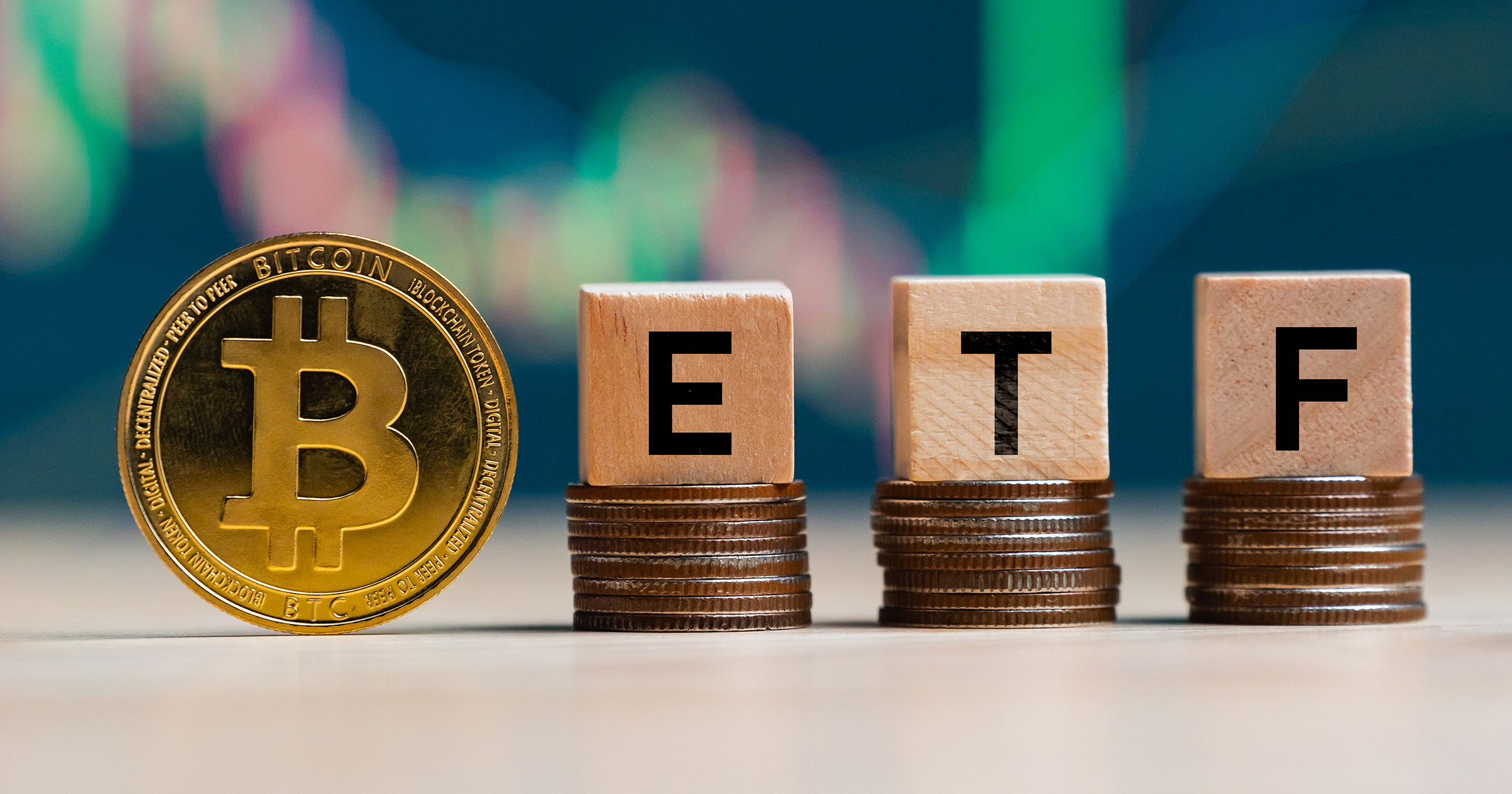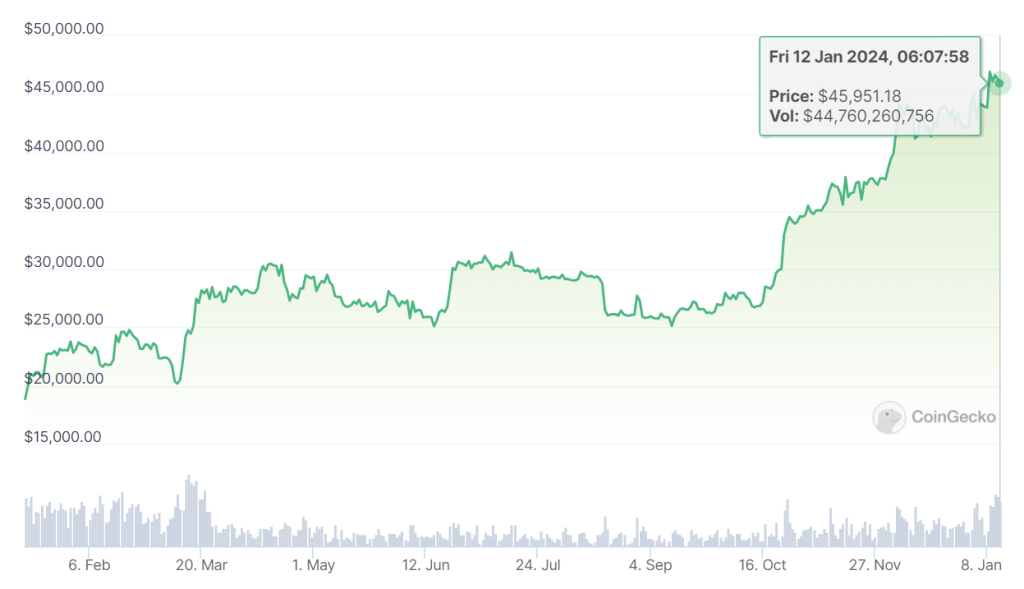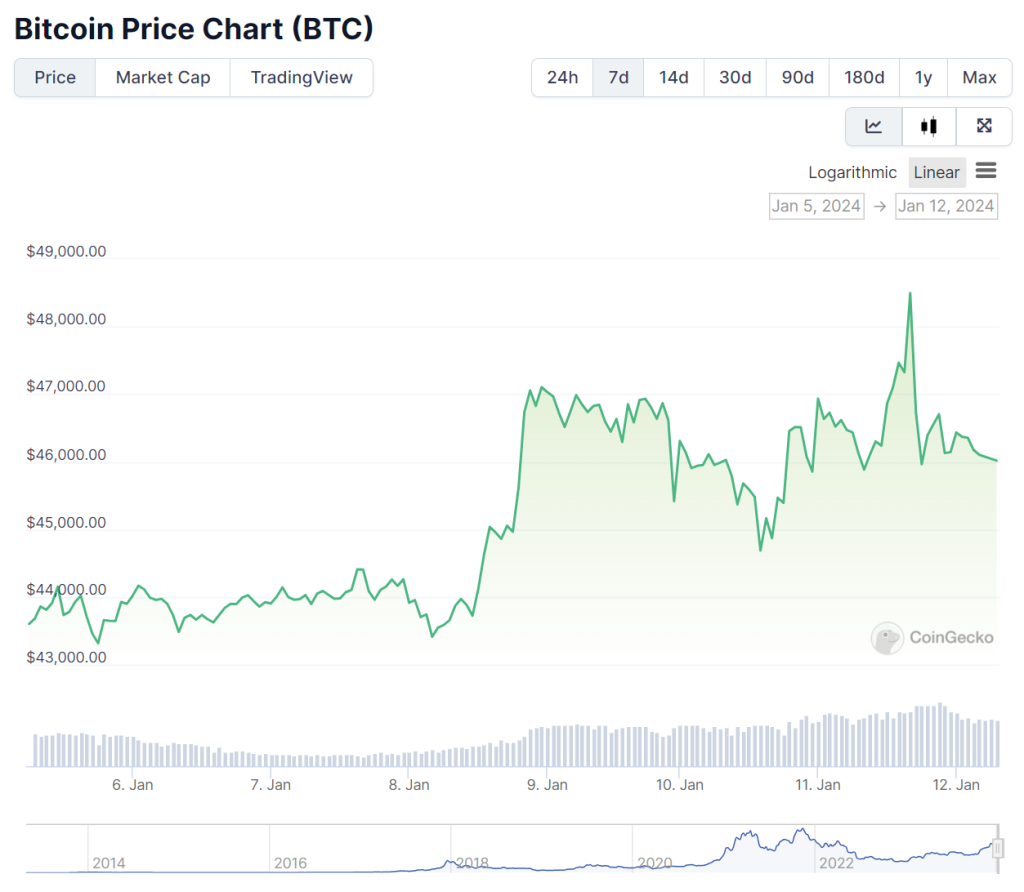Today, Bitcoin has gained access to trillions of dollars. Here’s why it may rally (and why not)
The launch of Bitcoin ETFs in America is the best piece of news for crypto in 2 years. But if you're hoping for big returns, it might be too late.

Disclaimer: Opinions expressed below belong solely to the author and do not constitute financial advice. At the time of writing the author had no holdings in cryptocurrencies.
The day long-awaited by crypto fans is finally here. The American Securities and Exchange Commission finally approved the first spot Bitcoin ETFs for trading in the US.
If you’re unfamiliar with the terms, ETF (exchange-traded fund) is a fund that makes investment decisions on its own, usually holding a diverse mix of different assets, and all you do is buy a share in it as if you purchased a share in a company.
From today, Bitcoin can be a part of its portfolio, with 11 funds explicitly dedicated to BTC approved for launch today.
Why it’s such a big deal
The main consequence is that someone can now pour trillions of dollars invested in America into the cryptocurrency.
Until now, if you wanted to invest in BTC, you had to buy it, which typically involved setting up an account on one of the exchanges (like Coinbase, Binance or the ill-fated FTX), creating a digital wallet, transferring and converting fiat and trading the coin there.
This process meant you had to put some effort and interest into the endeavour, and — as exhibited by FTX’s spectacular implosion in 2022 — involved insignificant risks.
From today on, however, Americans can invest in Bitcoin simply by buying shares in one of the traded funds that hold it. Many may not be aware of the exact composition of an ETF asset sheet and still have a portion of their money placed into the leading cryptocurrency.
This is a big deal since the latest figures put American household holdings of financial assets at over US$112 trillion, including over US$43 trillion in stocks. Exchange-traded funds hit a record milestone in December, surpassing a combined US$8 trillion in assets under management.

American households held $112.4 trillion in financial assets as of Q3 of 2023 / Image Credit: Federal Reserve Bank of St. Louis
Meanwhile, even after last year’s significant gains, Bitcoin’s entire market capitalisation is still only around US$900 billion.
As you can see, then, many crypto optimists are expecting that even a tiny chunk of this massive investment pie could trigger a quick appreciation of BTC, elevating it to — or beyond — the record highs recorded in 2021, when the coin’s price briefly hit over US$65,000.
To the Moon…
This is why Bitcoin seems so well-positioned to go up in value.
Yes, Bitcoin ETFs are nothing new globally, and even the US has approved some funds that used Bitcoin futures (an instrument that tracks the future price of the coin), allowing people to trade in BTC-linked assets for the past two years.
But the sheer scale of the American market, coupled now with the permission for funds to hold Bitcoin directly, has the potential to unlock a flood of money that could revive the boom of 2021.
As the trading on the first day draws close, the volume across all 11 approved funds has hit US$4.6 billion, already proving high demand.
This is definitely ground-breaking, there was no doubt demand would be strong for these ETFs, but the numbers across the board are impressive.
Athanasios Psarofagis, ETF analyst at Bloomberg Intelligence, Bloomberg via YahooBare numbers, then, and market circumstances seem to be on Bitcoin’s side. However, not all is so rosy.
…and back to Earth
First of all, the impact on the price of Bitcoin is, as ever, going to depend on the anticipated future price of the coin. The basic rules of investing don’t disappear simply because more money may have access to a particular asset.
Secondly, Bitcoin’s fundamental flaws are still there. So far, the token has no real utility and is held purely as a speculative asset. There’s no data — beyond solely technical signals — that you could use to predict future price moves reasonably.
Traditional currencies typically rely on broad economic information, including GDP growth, trade, debt, inflation and so on, to determine the price of each currency vs. another one. But no such statistics exist for BTC because it’s not used for any real purpose outside trading.
 BTC has more than doubled in value in 2023 – but much of this growth was due to rumours surrounding the possible ETF launch after SEC lost a legal battle with Grayscale Investments in October / Image Credit: CoinGecko
BTC has more than doubled in value in 2023 – but much of this growth was due to rumours surrounding the possible ETF launch after SEC lost a legal battle with Grayscale Investments in October / Image Credit: CoinGeckoFinally, it has already appreciated quite enormously over 2023, and a good deal of this growth happened since October after the SEC lost its legal battle with Grayscale Investments, which sued the commission after being refused a conversion of its existing trust into a spot-traded ETF.
Throughout the year, even before the final ruling, other companies have filed their applications, including the heavyweights from BlackRock or Fidelity.
In other words, 2023 has been a year of anticipation that has already drawn considerable investment, elevating BTC price by over 150 per cent to around US$45,000.
Paradoxically, the best way to make money on Bitcoin ETFs may have been before they launched.
This would explain the coin’s timid response to the funds’ launch, with a brief jump following the Wednesday announcement and no meaningful movement since.
 Bitcoin has gained a relatively modest 5.4% this week, following the news of SEC approval for Bitcoin ETFs on Wednesday. / Image Credit: CoinGecko
Bitcoin has gained a relatively modest 5.4% this week, following the news of SEC approval for Bitcoin ETFs on Wednesday. / Image Credit: CoinGeckoAs of now, it is still about 50% off its 2021 peak of US$65,000. But is it enough of an upside to justify the risk that it might just as well go down by as much? After all, it was just a year ago when it was still under US$20,000.
There are those, of course, who believe it may reach US$100,000 or more, but the basis for this optimism is, at best, a notion that people will once again go crazy for crypto as they did 2-3 years ago.
Since then, however, many have been badly burnt, and following the subsequent implosion of the NTF market, there’s been no new promise of utility for any cryptocurrency.
With the approval for publicly traded Bitcoin ETFs, investing in crypto may have become safer and more regulated, but the fundamental risks remain the same.

 Astrong
Astrong 
































